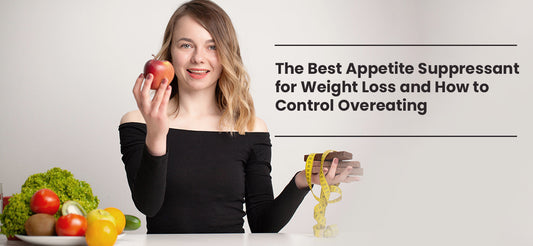Indulging in junk food may seem harmless at the moment, but its effects on your body shape can be significant over time. Junk foods are defined as meals that can be easily consumed with little to no consideration for their nutritional potential. Michael Jacobson coined the phrase "junk food" in 1972 to describe foods that were inadequate in nutritional value.
Having high amounts of fat, sugar, and salt content, these foods contribute significantly to excessive calorie intake and an imbalanced nutrient profile. The absence of crucial vitamins and minerals in junk food hampers metabolic activities. It has been observed that consumption of such meals causes continual accumulation of body fat, particularly visceral fat around the abdomen, which results in a disproportionate shape of the body over time. These types of foods are popular all around the world due to their enhanced taste, extended shelf life, and ease of transportation. Also, strategic advertisement of such foods successfully captures the attention of people which is enough to indulge an individual towards unhealthy eating habits. According to research, the majority of teenage obesity, high cholesterol, and atherosclerosis are caused by poor eating choices regularly. Sugar- and salt-rich foods are known to raise serotonin levels in the body, which causes mood swings and anxiety-like sensations every time the body's sugar levels drop. They also suffer from severe exhaustion, trouble focusing, and a decline in their cognitive senses. Unlike the elderly, who suffer from specific ailments related to the digestion and processing of junk food and its contents, teenagers may suffer from mental illnesses and cognitive deficits if exposed to excessive amounts of junk food. Therefore, these foods must be avoided or consumed within limits as it has a detrimental impact on health, leading to higher cholesterol, poor concentration, obesity, diabetes, heart disease, and various kinds of skin cancer.
Understanding Junk Food
Ultra-processed foods (UPFs), are a category of food items which is characterized by:
UPFs are formulated for palatability, convenience, and extended shelf life through various processing techniques. These techniques often:
Impact of junk food on body shape
Dietary patterns significantly influence body composition and shape. The regular consumption of junk food that is rich in energy, and poor in nutrients poses a substantial threat to maintaining a healthy body shape.
-
High-Calorie Content and Weight Gain
-
Impact on Insulin Regulation:
- Depletion of Muscle Mass:
- Long term effects
Consuming junk food has been demonstrated to have long-term impacts on the shape of the body. Research indicates that a junk food diet consumed by the mother throughout her pregnancy and lactation may raise the risk of obesity in the kids by increasing adipocyte hypertrophy and adiposity. There is an enhanced liking for fat in the offspring of mothers who were exposed to high-fat, high-sugar diets before delivery. This suggests that the central reward system is permanently altered, increasing the desire to overindulge in pleasing foods. In addition, consuming junk food as a youngster or teenager might create dietary patterns that last a lifetime and raise the chance of obesity in the future.
Junk food consumption, in general, have a major and long-lasting impact on how the body is shaped, raising the risk of obesity and associated health problems.
- Type 2 diabetes
- Obesity
- Insulin resistance
- Heart conditions due to high levels of cholesterol
- High reflux or Gastroesophageal Reflux Disease
- Heartburn
- Acute gastroenteritis
Tips to reduce junk food consumption
- Increasing awareness about the negative health effects of junk food may help in reducing its consumption.
- Promoting healthy eating habits and providing nutrition education can persuade people to make healthier food choices.
- Encouraging individuals to cook and prepare creative meals at home using fresh ingredients, colorful fruits, and vegetables can reduce reliance on processed and junk food.
- Setting limits and avoiding frequent consumption of carbonated drinks, and fast-food items.
- Reading nutritional labels (given on the back of packaged items) to know the ingredients and nutritive value and selecting the healthiest one after comparing similar items.
References
- Hall, K. D., et al. (2011). Calories and health: good vs. bad. American Journal of Clinical Nutrition, 94(4), 911S-921S.
- Ludwig, D. S. (2006). The glycemic index: a primer. Diabetes Care, 29(2), 348-358.
- Mozaffarian, D., et al. (2010). Components of a healthy diet in the context of overall healthy living. The New England Journal of Medicine, 363(16), 1510-1523.
- Malik, V. S., et al. (2013). Sugar-sweetened beverages and weight gain in children and adults: a systematic review and meta-analysis. The American Journal of Clinical Nutrition, 98(1), 1084-1102.
- Monteiro, C. A., et al. (2013). Ultra-processed foods and the burden of chronic non-communicable diseases. World Nutrition, 4(2), 505-512.
- Muhlhausler, B., Gugusheff, J., & Langley-Evans, S. (2017). Maternal Junk Food Diets: The Effects on Offspring Fat Mass and Food Preferences. , 227-238. https://doi.org/10.1007/978-3-319-60289-9_18.
- Payab, M., Kelishadi, R., Qorbani, M., Motlagh, M., Ranjbar, S., Ardalan, G., Zahedi, H., Chinian, M., Asayesh, H., Larijani, B., & Heshmat, R. (2015). Association of junk food consumption with high blood pressure and obesity in Iranian children and adolescents: the CASPIAN-IV Study. Journal de pediatria, 91 2, 196-205. https://doi.org/10.1016/j.jped.2014.07.006.
- Bhaskar, R. (2012). Junk Food: Impact on Health. . https://doi.org/10.22270/jddt.v2i3.132.
- Junk food contains high levels of sugar, white flour, trans fats, polyunsaturated fats, and fat salt, causing obesity, diabetes, heart disease, and various types of skin cancers.
- Hassan, S., Bhateja, S., Arora, G., & Prathyusha, F. (2020). Impact of junk food on health. Journal of Management Research and Analysis. https://doi.org/10.18231/j.jmra.2020.012.
- Mishra, S. (2023). Consumption of Junk Foods and Risk of Type 2 Diabetes: A Review. International Journal of Horticulture, Agriculture and Food science. https://doi.org/10.22161/ijhaf.7.2.2.
- Kaur, H., & Kochar, R. (2019). Nutritional Challenges and Health Consequences of Junk Foods. Current Research in Diabetes & Obesity Journal. https://doi.org/10.19080/crdoj.2019.10.555796.
- Poudel, P. (2018). Junk Food Consumption and Its Association with Body Mass Index Among School Adolescents. , 4, 65. https://doi.org/10.11648/J.CAJPH.20180403.11.








